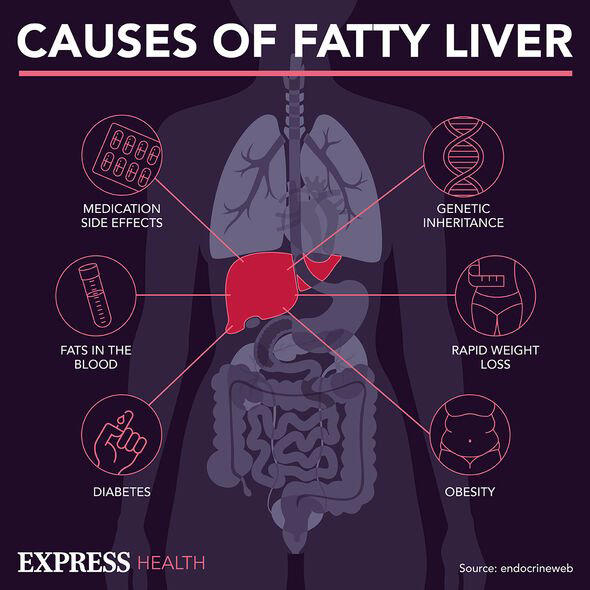Tamarind: Experts weigh in on health benefits, nutrition facts, and more













Tamarind: Experts weigh in on health benefits, nutrition facts, and more
Reference: Microsoft Health Start:
Persimmon: Experts weigh in on health benefits, nutrition facts, and more















Persimmon: Experts weigh in on health benefits, nutrition facts, and more
Benefits by Christos Sittas
- Persimmon contains a variety of phytochemical compounds including tannins, carotenoids, catechins, and phenolic compounds that possess antimutagenic, cardioprotective, and anticarcinogenic properties (Butt et al. 2015).
Reference: Microsoft Start Health: Faith Seke, Julia Rocha
Raisin: Experts weigh in on health benefits, nutrition facts, and more

















Raisin: Experts weigh in on health benefits, nutrition facts, and more
Side effects by Lucía Ramos
- Diabetic subjects should avoid raisins because of their high sugar content. Even if raisins don't have added sugar, the sugar in the dried fruit is concentrated.
→ Raisin: How much is too much? Experts weigh in.
→ Love Raisin? Get nutritional facts, tips from health experts, and more
This is for information purpose only, and should not be considered as a substitute for medical expertise. These are opinions from an external panel of individual doctors, and not to be considered as opinion of Microsoft. Please seek professional help regarding any health conditions or concerns.
Reference: Microstart Health: Faith Seke, Carolina Castro
Liver disease: The 'early' warning sign in your poo - 'Tell your doctor'















Liver disease: The 'early' warning sign in your poo - 'Tell your doctor'
As the name suggests, alcohol-related liver disease (ARLD) is triggered by consuming large amounts of the popular yet unhealthy drink. Although the first stages of liver disease don't usually show many warning signs, a health charity shares one "early" symptom that might occur when you go to the loo for number two
From food poisoning to tummy bugs, there are various causes of an unsettled stomach.
However, diarrhoea could be also pointing to problems with your liver, according to The British Liver Trust.
The charity shares that this change in bowel habits is one of the "early" symptoms of alcohol-related liver disease.
The charity explains that while the early stages of ARLD don't usually trigger many warning signs, diarrhoea is still considered to be an "early" symptom.
In fact, changes in your stool might be a tell-tale sign of another ARLD symptom - jaundice.
The NHS explains that once your liver becomes "more severely" damaged, jaundice can crop up.
This symptom describes the yellowing of your skin and the whites of your eyes but it can also present with stool changes.
The health service explains that jaundice can make your poo paler than usual.
This is due to a build-up of a liquid called bile in your body.
Apart from diarrhoea, other "early" symptoms of ARLD include:
- Abdominal (tummy) pain
- Loss of appetite
- Fatigue
- Feeling sick
- Diarrhoea
- Feeling generally unwell.
The British Liver Trust advises to "tell your doctor" if your experience signs of ARLD.
While these signs are all considered to be symptoms of alcohol-related liver disease, the condition doesn't always have to cause symptoms.
In fact, the NHS explains that alcohol misuse can lead to liver damage without causing any signs.
That's why the health body advises letting your doctor know if you regularly drink alcohol to excess.
How does alcohol-related liver disease occur
Liver represents one of the most complex organs in your body, with its ability to filter toxins, regulate cholesterol and blood sugar, aid digestion and help fight infections.
Each time you drink alcohol, some of your liver cells die. Luckily, the organ is able to develop new ones.
While your liver is able to regenerate itself after you drink alcohol, having too much of the popular drink can lower this ability.

"This can result in serious and permanent damage to your liver," the NHS notes.
When it comes to preventing ARLD, the most reliable way is to quit drinking. However, sticking to the recommended guidelines could also help.
Men and women are advised not to regularly drink more than 14 units of alcohol a week.
"Even if you have been a heavy drinker for many years, reducing or stopping your alcohol intake will have important short- and long-term benefits for your liver and overall health," the health service adds.
Reference: Daily Express: Diana Buntajova
Articles - Most Read
- Home
- LIVER DIS-EASE AND GALL BLADDER DIS-EASE
- Contacts
- African Wholistics - Medicines, Machines and Ignorance
- African Wholistics -The Overlooked Revolution
- African Holistics - Seduced by Ignorance and Research
- The Children of the Sun-3
- Kidney Stones-African Holistic Health
- The Serpent and the RainBow-The Jaguar - 2
- PART ONE: DIS-EASE TREATMENT AND HEALTH-3
- 'Tortured' and shackled pupils freed from Nigerian Islamic school
- King Leopold's Ghost - Introduction
- PART ONE: DIS-EASE TREATMENT AND HEALTH-4
- PART ONE: DIS-EASE TREATMENT AND HEALTH-2
- PART ONE: DIS-EASE TREATMENT AND HEALTH-5
- African Wholistics - Medicine
- Menopause
- The Black Pharaohs Nubian Pharaohs of Ancient Egypt
- The Mystery System
- PART ONE: DIS-EASE TREATMENT AND HEALTH-6
Who's On Line?
We have 89 guests and no members online
Ad Agency Remote
Articles - Latest
- The Male G Spot Is Real—and It's the Secret to an Unbelievable Orgasm
- Herbs for Parasitic Infections
- Vaginal Care - From Pubes to Lubes: 8 Ways to Keep Your Vagina Happy
- 5 Negative Side Effects Of Anal Sex
- Your Herbs and Spices Might Contain Arsenic, Cadmium, and Lead
- Struggling COVID-19 Vaccines From AstraZeneca, BioNTech/Pfizer, Moderna Cut Incidence Of Arterial Thromboses That Cause Heart Attacks, Strokes, British Study Shows
- Cartilage comfort - Natural Solutions
- Stop Overthinking Now: 18 Ways to Control Your Mind Again
- Groundbreaking method profiles gene activity in the living brain
- Top 5 health benefits of quinoa
- Chromolaena odorata - Jackanna Bush
- Quickly Drain You Lymph System Using Theses Simple Techniques to Boost Immunity and Remove Toxins
- Doctors from Nigeria 'facing exploitation' in UK
- Amaranth, callaloo, bayam, chauli
- 9 Impressive Benefits of Horsetail
- Collagen The Age-Defying Secret Of The Stars + Popular Products in 2025
- Sarcopenia With Aging
- How to Travel as a Senior (20 Simple Tips)
- Everything you need to know about mangosteen





